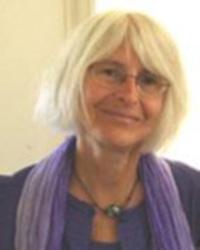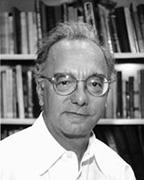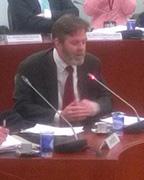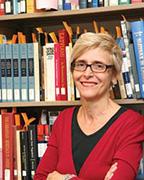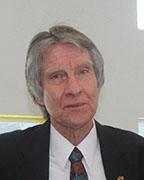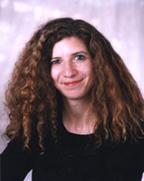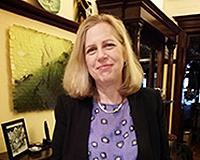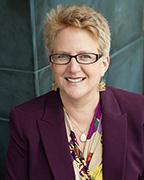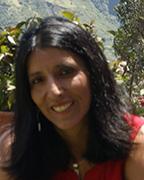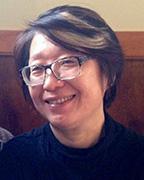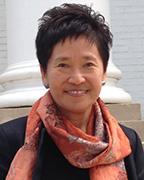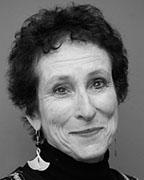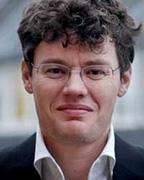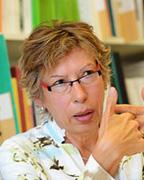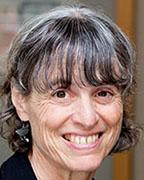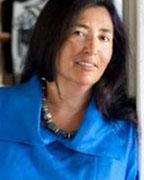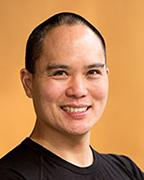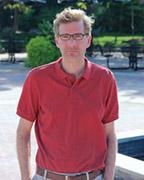CGMS 2017 Conference: Global Labor Migration Network Inaugural Workshop
On April 20-21, 2017, the Center for Global Migration Studies hosted the inaugural workshop of the Global Labor Migration Network.
Conference Information
April 20-21, 2017
Juan Ramon Jiménez Room, Stamp Student Union
University of Maryland, College Park, MD
About the Conference
On April 20-21, 2017, the Center for Global Migration Studies hosted the inaugural workshop of the Global Labor Migration Network. The Center's mission is to study migration through interdisciplinary collaborations and through a global framework. It is also committed to a model of engaged scholarship and pedagogy that seeks to illuminate contemporary social problems. The conditions surrounding global labor migration today--unprecedented in world history--provide the challenge and opportunity for precisely this model.
The workshop featured two days of panels. The first day concluded with a public talk given by Ruth Milkman (CUNY Graduate Center) titled “Precarity and Polarization: Global Migrants in the 21st Century U.S. Labor Market.” The lunchtime talk on April 21 featured Brian Finnegan, AFL-CIO Global Worker Rights Coordinator, on the policy implications of global labor migration research. We concluded with time to meet as a group to discuss next steps and to brainstorm for the major conference planned for 2019.
Schedule
Thursday, April 20
8:30 am Breakfast
9:00 am
Welcome and Introductory Remarks
Julie Greene, University of Maryland
Heidi Gottfried, Wayne State University
Conference Co-chairs
9:30 am
Session One: Migrant Workers' Organizing
Chair: Heidi Gottfried, Department of Sociology, Wayne State University
Ruri Ito, Department of Sociology, Hitotsubashi University, "Negotiating Partial Citizenship under Neoliberalism: Regularization Struggles among Filipino Domestic Workers in France (2008-2012)"
Nafisa Tanjeem, Department of Women's and Gender Studies, Rutgers University, "Understanding the Apparel Supply Chain from the Retail Side: Experiences of Bangladeshi Immigrant Women Wal-Mart Workers"
Gioconda Herrera, Department of Sociology, FLACSO Sede Ecuador, “Precarious Work and the Social Construction of "Illegality": Ecuadorian Indigenous Families in New York”
Commentator: Mary Romero, Department of Sociology, Arizona State University
11:30 am Lunch Break
1:00 pm
Session Two: Global Labor Regulation, Migration, Nation-Building
Chair: Leon Fink, Department of History, University of Illinois at Chicago
Eileen Boris, Department of History, University of California Santa Barbara, “The ILO and the Migrant Woman”
Donna Gabaccia, Department of History, University of Toronto, "Terminologies of Mobility: Comparing Workers, Labour and Class in American and Swiss Nation-Building"
Joo-Cheong Tham, Melbourne Law School, “Why is Labour Protection for Temporary Migrant Workers so Fraught? A Perspective from Australia”
Commentator: Eleonore Kofman, Department of Social Policy, University of Middlesex
3:00 pm Reception and Break
4:00 pm
Public Talk: Ruth Milkman, Department of Sociology, CUNY Graduate Center
"Precarity and Polarization: Global Migrants in the 21st Century U.S. Labor Market"
Friday, April 21
8:30 am Breakfast
9:00 am
Session Three: Border Crossings: Circuits of Labor Migration
Chair: Cindy Hahamovitch, Department of History, University of Georgia
Helma Lutz, Department of Sociology, Goethe-Universität Frankfurt, “Care as a Fictitious Commodity: Reflections on the Intersections of Migration, Gender and Care Regimes”
Rodolfo García Zamora, Department of Economics, Universidad Autónoma de Zacatecas, México, “Return Migrations”
Leo Lucassen, International Institute of Social History, Amsterdam, “Peeling an Onion: The 'Refugee Crisis' in a Historical Pespective”
Commentator: Andrés Villarreal, Department of Sociology, University of Maryland
11:30 am
Lunchtime Conversation with AFL-CIO Global Worker Rights Coordinator Brian Finnegan on the policy implications of global labor migration research
Workshop Participants
Eileen Boris is Hull Professor of Feminist Studies at the University of California Santa Barbara. She received her Ph.D. in American Civilization from Brown University in 1981. She has written and edited nine books, including her most recent publication Caring for America: Home Health Workers in the Shadow of the Welfare State. She has also published numerous other academic articles, reports, and op-eds relating to gender, race, and labor. Her interdisciplinary approach to history currently focuses primarily on women workers and the home as a workplace.
Leon Fink is Distinguished Professor of History at the University of Chicago. He is a specialist in American labor, immigration history, and the Gilded Age/Progressive Era. He is the author or editor of a dozen books, including his most recent work, The Long Gilded Age: American Capitalism and the Promise of a New World Order.
Brian Finnegan is the Global Worker Rights Coodinator for the AFL-CIO, where much of his current work focuses on corporate accountability and workers’ rights in supply chains. Previously, he ran workers’ rights programs with unions and civil society partners in Colombia, the Southern Cone countries and Brazil and directed regional and national programs while based in Uruguay and Brazil with the American Center for International Labor Solidarity. He holds a PhD in American Studies from George Washington University, where he studied US labor relations, folklore, cultural history and Latin American studies.
Donna Gabaccia is Professor in the Department of Historical and Cultural Studies at the University of Toronto, Scarborough. She has written and edited fifteen books on U.S. immigration, migration in world history, and the history of the worldwide Italian diaspora. Gabaccia’s most recent book, Gender and Migration: From the Slavery Era to the Global Age, co-authored with Katharine Donato, won honourable mention from the American Sociological Association. Her previous book, Foreign Relations: Global Perspectives on U.S., won the 2013 Theodore Saloutos Prize for the best book in American Immigration and Ethnic History from the Immigration and Ethnic History Society.
Rodolfo García Zamora is Professor/Researcher at the Academic Unit in Development Studies at the Autonomous University of Zacatecas and is a specialist in the areas of migration, remittances and regional/rural development. Rodolfo García Zamora received his Doctorate in Economic Sciences from the Autonomous University of Barcelona. He has extensive research experience in the field of international migration, migrant organizations, and regional / local development. His research seeks a deeper understanding of migration from a multidimensional (demographics, historical, spatial, social, economic, political and cultural) perspective and through a transnational prism. His publications include Migración, Remesas y Desarrollo Local, Crisis y Modernización del Agro en México, 1940-1990, and numerous book chapters and articles in academic journals.
Heidi Gottfried is Associate Professor in the Department of Sociology at Wayne State University. She received her Ph.D. from the University of Wisconsin, Madison in 1987. Her research interests include sociology of work, sociology of gender, welfare state, feminist theory, labor movements, & comparative political economy. She typically teaches courses on sex & gender, social problems, or gender, globalization and paid work. Recent publications include the Handbook on the Sociology of Work and Employment, co-edited with Stephen Edgell and Edward Granter, and Gender, Work and Economy: Unpacking the Global Economy.
Julie Greene is Professor of History at the University of Maryland, College Park with particular interest in the history of labor, the working-class, and immigration. Her most recent book, The Canal Builders: Making America's Empire at the Panama Canal, focuses on the tens of thousands of workingmen and workingwomen who traveled from all around the world to live and labor on the canal project. She is founding co-director of the Center for Global Migration Studies.
Cindy Hahamovitch is B. Phinizy Spalding Professor of Southern History at the University of Georgia. She is the author of two books, The Fruits of Their Labor: Atlantic Coast Farmworkers and the Making of Migrant Poverty, 1870-1945 and the triple prize-winning No Man's Land: Jamaican Guestworkers in America and the Global History of Deportable Labor. A former Fulbright Fellow and the John E. Sawyer Fellow at the National Humanities Center, she is the past president of the Southern Labor Studies Association and the Reviews Editor for LABOR: Studies in the Working-Class History of the Americas. She is currently working on two projects: a history of human trafficking over the past two centuries and the history of Chambers v Florida, a 1933 murder trial involving four black defendants.
Gioconda Herrera is a professor and researcher in the Department of Sociology and Gender Studies at FLACSO Ecuador. She holds a Ph.D. in Sociology from Columbia University. Her research centers on the study of social inequalities in globalization, especially through the analysis of international migration. Her recent publications have focused on the relationship between gender, migration and social organization of care in globalization and in the understanding of transnational families. Her current project examines the impact of global crisis on migration strategies of Ecuadorian people in Spain and in the United States. Recent publications include “Reflecting on Global Care Chains from the Experience of Latin American Migrant Women” in Global Social Transformation and Social Action: The Role of Social Workers and “Lejos de tus pupilas”: Familias transnacionales, cuidados y desigualdad social en Ecuador.
Ruri Ito is Professor in the Graduate School of Social Sciences at Hitotsubashi University in Tokyo, Japan. She earned her doctorate at the Ecole des Hautes Etudes en Sciences Sociales, Paris in 1981. She specializes in transnational sociology, migration and gender, and globalization studies. Her most recent publications include “Negotiating Partial Citizenship under Neoliberalism: Regularization Struggles among Filipino Domestic Workers in France (2008-2012)” in the International Journal of Japanese Sociology , and “Crafting Migrant Women’s Citizenship in Japan: Taking “Family” as a Vantage Point” in the International Journal of Japanese Sociology.
Seung-Kyung Kim is the inaugural Korea Foundation Professor in the Department of East Asian Languages and Cultures, and Director of the Institute for Korean Studies at Indiana University Bloomington. Her scholarship addresses the participation of women in social movements as workers and in relation to the state; the processes of transnational migration in the context of globalization and the experiences of families in that process, especially with regard to education; and feminist theories of social change. She is the author of Class Struggle or Family Struggle?: Lives of Women Factory Workers in South Korea and The Korean Women's Movement and the State: Bargaining for Change, and co-editor of Feminist Theory Reader: Local and Global Perspectives. She is currently working on a book manuscript, The Making of Global Citizens?: Transnational Migration and Education in Kirŏgi Families.
Eleonore Kofman is Professor of Social Policy at the University of London Middlesex School of Law. She is currently the Co-Director of the Social Policy Research Centre and Migration Law and Policy Unit, and is Joint Research Leader in the Department of Law and Politics. Her research interests include migration and citizenship as well as social science research methods. She is the author of several books and articles, including Gendered Migrations and Global Social Reproduction with Parvati Raghuram and “Gendered labour migrations in Europe and emblematic migratory figures” in Journal of Ethnic and Migration Studies.
Leo Lucassen is Professor of Global Labour and Migration History and director of the International Institute of Social History (IISH). In 1990 he was granted a PhD from Leiden for his dissertation on the history of Gypsies in the Netherlands 1850-1940. His research focuses on global migration history, integration, migration systems, migration controls, Gypsies and the state, state formation and modernity, and urban history. His research interests include migration, integration, urbanisation, and global history. He is the author, co-author, and editor of several publications, including Globalising Migration History: The Eurasian Experience, The Mobility Transition in Europe Revisited, 1500-1900, Migration History in World History, and “Migration and World History: Reaching a New Frontier”.
Helma Lutz is Professor and Chair of Women’s and Gender Studies at the Goethe-Universität Frankfurt Institute of Sociology. She earned her MA in Sociology from the Free University of Berlin and her PhD in Sociology from the University of Amsterdam. Her research interests include women’s and gender studies, migration, intersectionality, and racism and ethnicity. Her recent research projects include “Gute Sorgearbeit? Transnational Home Care Arrangements,” a study of transnational recruitment by home care agencies of mostly female migrant carers for employment as live-ins in private households, and “Feminism vs. Multiculturalism? On the discursive construction of powerful dilemma,” which scrutinized the increasing and questionable role of feminist claims in contemporary public debates on multiculturalism and integration in France and Germany. Her publications include The New Maids. Transnational Women and the Care Economy and Framing Intersectionality. Debates on a Multi-Faceted Concept in Gender Studies.
Ruth Milkman is Distinguished Professor of Sociology at the CUNY Graduate Center and at the Joseph S. Murphy Institute for Worker Education and Labor Studies, where she teaches Labor Studies and serves as Research Director. Before returning to New York City in 2010, she spent 21 years as a sociology professor at UCLA, where she directed the Institute for Research on Labor and Employment from 2001 to 2008. Her early research focused on the impact of economic crisis and war on women workers in the 1930s and 1940s. More recently she has written extensively about low-wage immigrant workers in the U.S., analyzing their employment conditions as well as the dynamics of immigrant labor organizing. She also co-authored a study of California’s paid family leave program, focusing on its impact on employers and workers.
Mary Romero is Professor of Justice Studies and Social Inquiry at Arizona State University and Affiliate of Women and Gender Studies, Asian Pacific American Studies and African and African American Studies. She is the author of The Maid’s Daughter: Living Inside and Outside the American Dream and Maid in the U.S.A. and co-editor of Blackwell Companion to Social Inequalities, Latino/a Popular Culture, Women’s Untold Stories: Breaking Silence, Talking Back, Voicing Complexity, Challenging Fronteras: Structuring Latina and Latina Lives in the U.S., and Women and Work: Exploring Race, Ethnicity and Class. Her research focuses on the unequal distribution of reproductive labor as a paid commodity and its role in reproducing inequality among families within countries and between nations.
Nafisa Tanjeem is a PhD Candidate in the Department of Women's and Gender Studies at Rutgers University. Her research examines how changing modes of production and consumption practices across transnational spaces constitute gendered and racialized global actors and institutions. Upon completion of her Master's in Canada, she worked as community organizer and later as Events Coordinator with Council of Agencies Serving South Asians (CASSA), a non-profit social justice organization in Toronto. Her responsibilities entailed organizing local campaigns for promoting poverty reduction, access and equity, and youth engagement among South Asian immigrant communities in Toronto. She also served as research assistant at University of Toronto for a multi-sited historical project concerning the history of medicine. In Bangladesh, Nafisa taught at University of Dhaka and worked as research assistant with Gender and Media Forum and International Labor Organization - Bangladesh.
Joo-Cheong Tham is Associate Professor at Melbourne Law School. He graduated from the University of Melbourne with a first class honours degree in law and also has a Master of Laws and Doctorate of Law from the same university. His research spans the fields of labor law and public law with a focus on the regulation of precarious work and political finance law. He has also undertaken considerable research into counter-terrorism laws. He has published 33 book chapters and refereed articles, edited two collections and produced three monographs including Money and Politics: The Democracy We Can’t Afford. His research has also been published in print and online media, including more than 40 opinion pieces. He regularly speaks at public forums and has presented lectures at the Commonwealth, South Australian and Victorian Parliaments. He has also given evidence to parliamentary inquiries into labour migration, terrorism laws and political finance laws, and has written key reports for the New South Wales Electoral Commission on the regulation of political finance and lobbying.
Andrés Villarreal is a Professor in the Department of Sociology at the University of Maryland, College Park. He was previously a faculty member at the University of Texas at Austin. His current research focuses on four broad areas: internal and international migration, race and ethnicity, crime and violence, and social inequality. All of his research is carried out within the context of Latin America, with a special focus on Mexico. His work has appeared in the American Sociological Review, the American Journal of Sociology, Demography, and Social Forces, among other peer-reviewed journals. He currently heads the Migration Research Laboratory at the Maryland Population Research Center.


